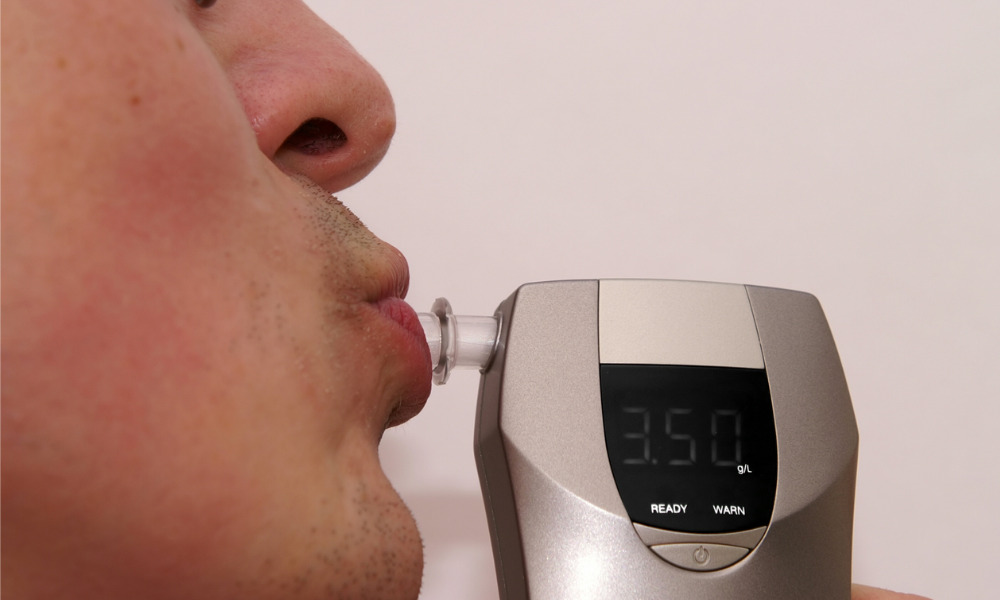Increase in alcohol, drug use during pandemic may put focus on workplace testing

Have you raised a few more glasses during lockdown? If so, you’re not alone.
The pandemic has had a negative effect on people’s mental health, which in many cases has led to more people consuming alcohol and using drugs. A recent U.S. study found that nearly half of workers are dealing with an addiction to alcohol or drugs, with 36 per cent revealing that it has affected their work since the beginning of the pandemic — and 57 per cent have lost more than 10 hours per week due to substance abuse.
The problem isn’t unique to our neighbours south of the border. A survey conducted in Canada last summer found that one out of four respondents consumed more alcohol than they would have before the pandemic, and a similar proportion of cannabis users consumed the drug more frequently.
Employers have reason to be concerned. As the U.S. study indicates, excessive consumption of drugs and alcohol can affect the quality and quantity of someone’s work and increase absenteeism. And perhaps most concerning are potential safety issues. With many people working from home, there is less risk of injury, but it’s still possible for someone to get hurt in the home office if they’re not careful. Depending on the jurisdiction, there could be liability or workers’ compensation in order if someone is hurt while working from home. Even if there isn’t, the worker could have to take time off due to injury.
There are still many employers that have employees coming into work, where safety is a big concern, particularly if the workplace has hazards where an intoxicated employee could pose a danger to themselves and others around them. With the increase in the use of drugs and alcohol during the stress-filled times of the pandemic, some employers might face the prospect of implementing or increasing workplace testing for them.
The Canadian Nuclear Safety Commission has implemented new rules for testing workers at high-security nuclear sites.
Landmark case
As many know, workplace drug and alcohol testing can be fraught with legal peril and it’s not easy to implement without a challenge. A landmark decision on the subject came back in 2000 when the Ontario Court of Appeal found that random drug and alcohol testing of all employees was discriminatory because the test results didn’t reflect impairment while on the job. However, the court allowed testing that could detect impairment for safety-sensitive positions: see Entrop v. Imperial Oil Ltd., 2000 CarswellOnt 2525.
Thirteen years later, the Supreme Court of Canada also nixed random testing in a New Brunswick workplace, as the breach of employee privacy was unreasonable when put against the “uncertain to minimal” safety gains. The top court also found that alcohol-related incidents in the workplace that the employer raised weren’t enough to demonstrate that there was a problem.
The decision in this case went back and forth, as the Supreme Court upheld the arbitrator’s original decision, which had been overturned by an appeal court: see Communications, Energy and Paperworkers Union of Canada, Local 30 v. Irving Pulp & Paper Ltd., 2013 SCC 34.
As far as back-and-forth, however, the Irving case had nothing on a years-long legal battle between Suncor Energy and its union regarding random testing at an Alberta oilsands site that was implemented in 2012. An arbitration panel reached a similar conclusion as in Irving, finding that testing was an unreasonable infringement of employee privacy without evidence of a widespread problem at the worksite.
However, the Alberta Court of Queen’s Bench said random testing was permissible if Suncor could establish that there was a general problem of drug or alcohol, adding that test was a requirement to ensure safety at a site with many hazards. However, the battle continued, with the province’s Court of Appeal upholding the Queen’s Bench decision.
The union successfully obtained an interim injunction against random testing while it appealed to the Supreme Court of Canada, but the country’s top court denied the appeal in 2018: see Unifor, Local 707A v. Suncor Energy Inc, 2018 ABCA 75. Later that year, Suncor reached a settlement with the union allowing random testing for workers in safety-sensitive positions.
However, it’s important to remember that testing for alcohol and testing for drugs aren’t necessarily the same thing. A B.C. arbitrator made this distinction, finding that an employer had cause to order a breathalyzer test after an employee reported to work smelling of alcohol, but didn’t have cause to dismiss him when he passed the breathalyzer test but failed a urine test for drugs in his system.
The drug test was an unreasonable breach of privacy when there was no evidence of impairment, said the arbitrator, noting that some circumstances could still provide cause for both tests: see Vancouver Drydock Co. and Marine Workers and Boilermakers Industrial Union, Local 1 (CL), Re, 2018 CarswellBC 1419.
Employers that want to perform drug and alcohol testing following workplace incidents face obstacles if they don’t do it properly.
Drug and alcohol testing in the workplace has been a contentious issue for decades between employers, unions, and workers. The cases above are only a small sample of the legal battles that have been waged over it. With the apparent increase in drug and alcohol use during the pandemic, there may be reason for some employers to look at it as an option.
However, there are always issues that must be considered in tandem with testing, such as employee privacy and the possible need for accommodation — addiction is a disability protected under human rights legislation.
Raising a glass too many may make employers a little testy, but they may or may not be able to conduct a test.




